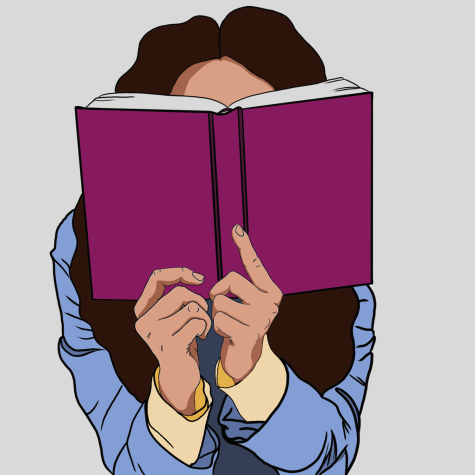Representation, reading and connection in a digital age: Whitman Storytime Program hosts “The Power of Story” lecture
April 15, 2021
Libraries, psychology and advocacy found an intersection on Monday, April 5 when Whitman’s Storytime Program hosted a Zoom discussion about children’s literature and reading aloud entitled “The Power of Story: The Important Role of Story and Literature in Child Development.”
The event was led by Claire Weissman, a sophomore computer science major and the current head of the Whitman Storytime Program, with a panel of guest speakers from the Whitman and Walla Walla communities, consisting of Liz George, the Young People’s Librarian at the Walla Walla Public Library, Whitman Associate Professor of Psychology Erin Pahlke and Eliedon Mcclellan, the Learning Coalition Program Director at the Early Learning Coalition in Walla Walla.
The panel focused on key questions of representation, and how children’s literature can be used as an instrument of social change. The speakers stressed the importance of exposing children to diverse perspectives and a wide range of stories. The conversation also turned to the recent controversy surrounding renowned children’s book author Dr. Seuss, after the publishing company that handles the author’s intellectual properties decided to remove some of his work from circulation because of racist imagery. Panelists discussed this troubling legacy and the importance of addressing and reflecting on these issues.

Panelist and psychology professor Erin Pahlke reflected on some of these implications, and the role that children’s literature can play in furthering cultural stereotypes and prejudices:
“As we think about what the messages kids are getting from the stories they’re reading, I was glad to see the publishing company decide to discontinue some of the books. One of our jobs as adults is to look through the children’s literature that is available and to think about whether or not it’s consistent with what we want kids to learn,” Pahlke said.
Pahlke then reflected on some of the books she had read as a child and that she thinks are suited for her own kids in the 21st century. To stress the good that can come from children’s literature done right, she said, “Including characters from lots of different backgrounds in terms of culture, race, ethnicity, gender presentation, things like that: there is a value in exposing kids to that,” Pahlke said.
Weissman has been involved with the Storytime Program since her first semester at Whitman and has worked to shift the program to an online format. In past years, the program focused on sending Whitman students to local classrooms to read aloud to children, but now the program is almost solely online and takes the form of videos uploaded to YouTube. This shift has been dramatic for many of its affiliates, but has also allowed for some unexpected expansions:
“Because of the new format, we pushed out the YouTube a little bit differently — instead of just going to specific teachers that want to participate, we go out to teachers, parents, and hopefully through the Walla Walla Public Library at some point,” Weissman said.
The changes the Storytime Program has had to make have also allowed for events like this one, which brought voices from around the community together, to create and further a dialogue that might not have otherwise happened:
“I wanted to educate people on how important reading and literature are. When you get to college you don’t have free time, really at all, and so reading for fun and for your own education kind of drops away.” Weissman said.
First-year Francesca Rossi is a new member of the Whitman Storytime Program, and has only experienced being part of the group during the pandemic and after the program switched to an online format. She echoed many of the same sentiments as the panelists, and remarked on what stories mean to her.
“It’s a big thing to be able to hear stories, or learn new things from books… Being able to see yourself in a book or a story is really important to kids growing up and learn both morals and how to navigate the world in general.” Rossi said.
There was consensus among all the panelists about the influence of literature and reading aloud on childhood development, both the harm that can be caused without knowing and the positive change it can inspire. Showing literature with complicated morals and diverse perspectives, and choosing books with messages that can help guide children can be crucial to creating social change in new generations.
The Whitman Storytime Program can be found on YouTube and is hosting events throughout the semester.





